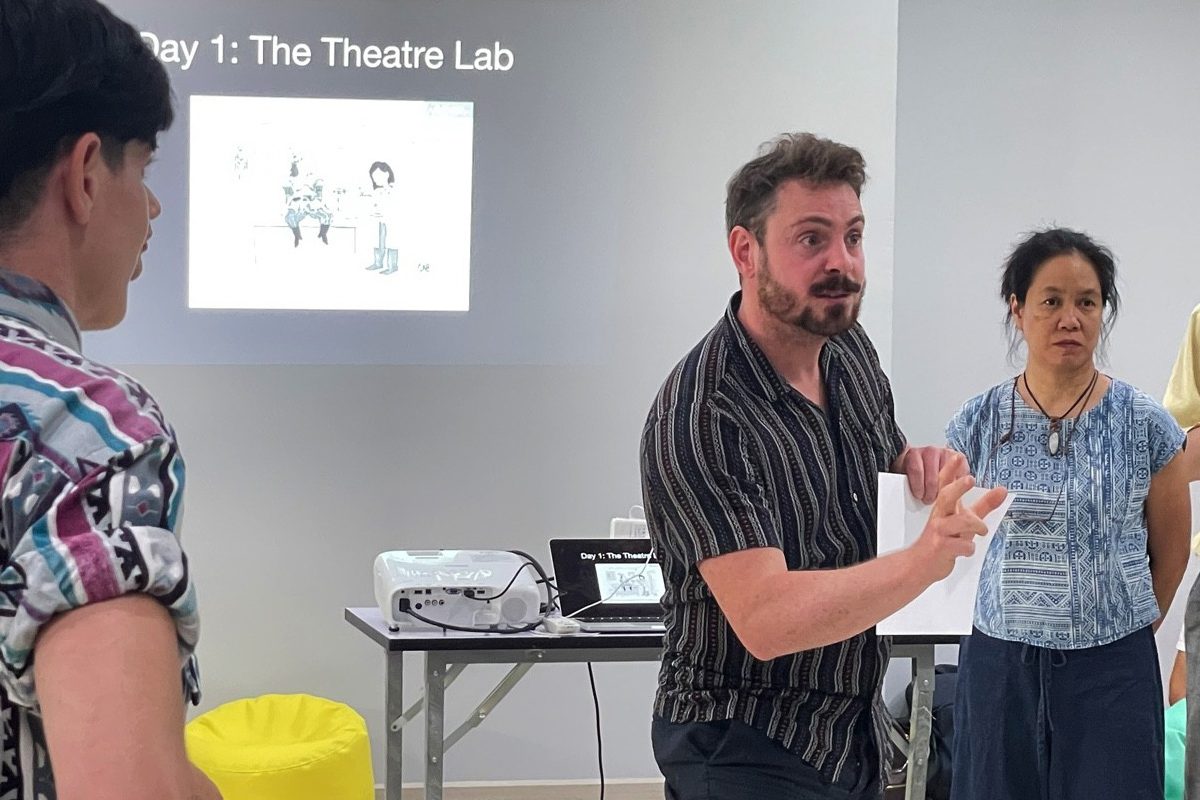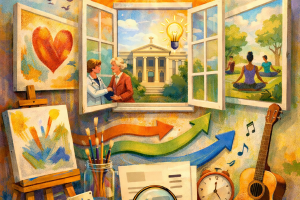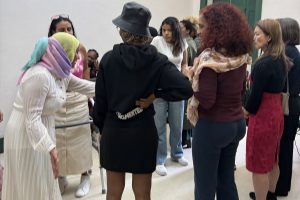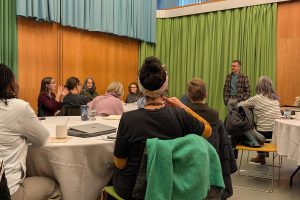As the Doncaster Creative Health Board continues to implement its mission, we sat down with the newly appointed Creative Health Connector, Dave Cartwright, to learn more about his role and how it aligns with Doncaster’s wider Creative Health goals.
Hi Dave, can you start by introducing yourself and explaining your relationship with Creative Health?
Yes, absolutely. I’m Dave Cartwright, 35 years old. Although I was born in Newcastle and proudly celebrate my Geordie roots, I like to think of myself as an honorary Yorkshireman, having lived in West and South Yorkshire for the last 16 years.
I would say that my background, at first glance, leans more toward the ‘Creative’ side of ‘Creative Health.’ I was previously the founder and artistic director of a theatre company, Creative Producer for the Leeds International Piano Competition, and Co-Creation Producer for LEEDS 2023 (a Year of Culture programme).
That said, ‘Health,’ both mental and physical, has always been a significant part of my work. It’s been a central theme in the environments I’ve worked in and with the people I’ve worked alongside.
As a result of this, and from my own lived experience with ill family members, I’ve found that my artistic work often addresses health-related themes. After all, art is about the human condition. So, even though I may not have been calling it that, Creative Health is a space I’ve been working within for quite some time.
Brilliant! Can you tell us why you applied for the Creative Health Connector role and what the role entails?
I can certainly try! It’s worth noting that this is a new role, so we’re still figuring some things out as we go along.
There were several factors that attracted me to the role. First and foremost, it’s a people-centred role with many diverse stakeholders. I’m not sure if it’s my northern roots or my curiosity in hearing different people’s stories, but I love meeting new people from all walks of life. This role is exactly that! One day I might be at a conference with 300 physiotherapists, osteopaths, and clinicians; the next, I could be in a community hall with 30 older women dancing to Bill Withers. For some reason, the ability to bridge these gaps gives me a lot of joy (or maybe I just love a boogie!).
Another driving factor for applying was the opportunity to work with incredible organisations in a sector I’m familiar and confident with, such as darts, CAST, and DGLAM, the partner cultural organisations. I also get to learn a huge amount about a sector that still feels quite complex to me – the healthcare system. It’s a chance to learn and grow while also sharing the wealth of experience I’ve gathered so far.
The Creative Health Connector role has already developed into several areas. Among other things, I act as an advocate for Creative Health across Doncaster, investigate the barriers to entry for individuals accessing Creative Health opportunities, and, as the title suggests, connect various elements of the Creative Health landscape – cultural programmes, local authority strategies, healthcare agendas, VCSE projects, community participants, and many more.
Wonderful! How do you think your role can effectively progress Creative Health in Doncaster?
What’s exciting to see is that Doncaster has been building towards a more robust Creative Health agenda for some time. This has generated strong buy-in across the city, which makes my role much easier. I’m coming in to support an initiative that already feels like it’s gaining momentum.
Where I see the Creative Health Connector role continuing to push things forward is by adding capacity. One of the best parts of the role is that I get to be in many different spaces, guided by the board members, and as one colleague put it, ‘breathe everything in, finding the right moments and places to breathe it back out.’ Through this process of absorbing ideas, thoughts, and feedback, the Creative Health Board becomes more agile, more informed, and more responsive. Thanks to the diversity of engagements I’m involved in, I can bring multiple perspectives to the board. It’s important to present these findings in a way that stays true to their sources while ensuring that what’s shared adds value to the board’s high-level strategic discussions. The role is designed to allow space for this type of thoughtful, inclusive thinking.
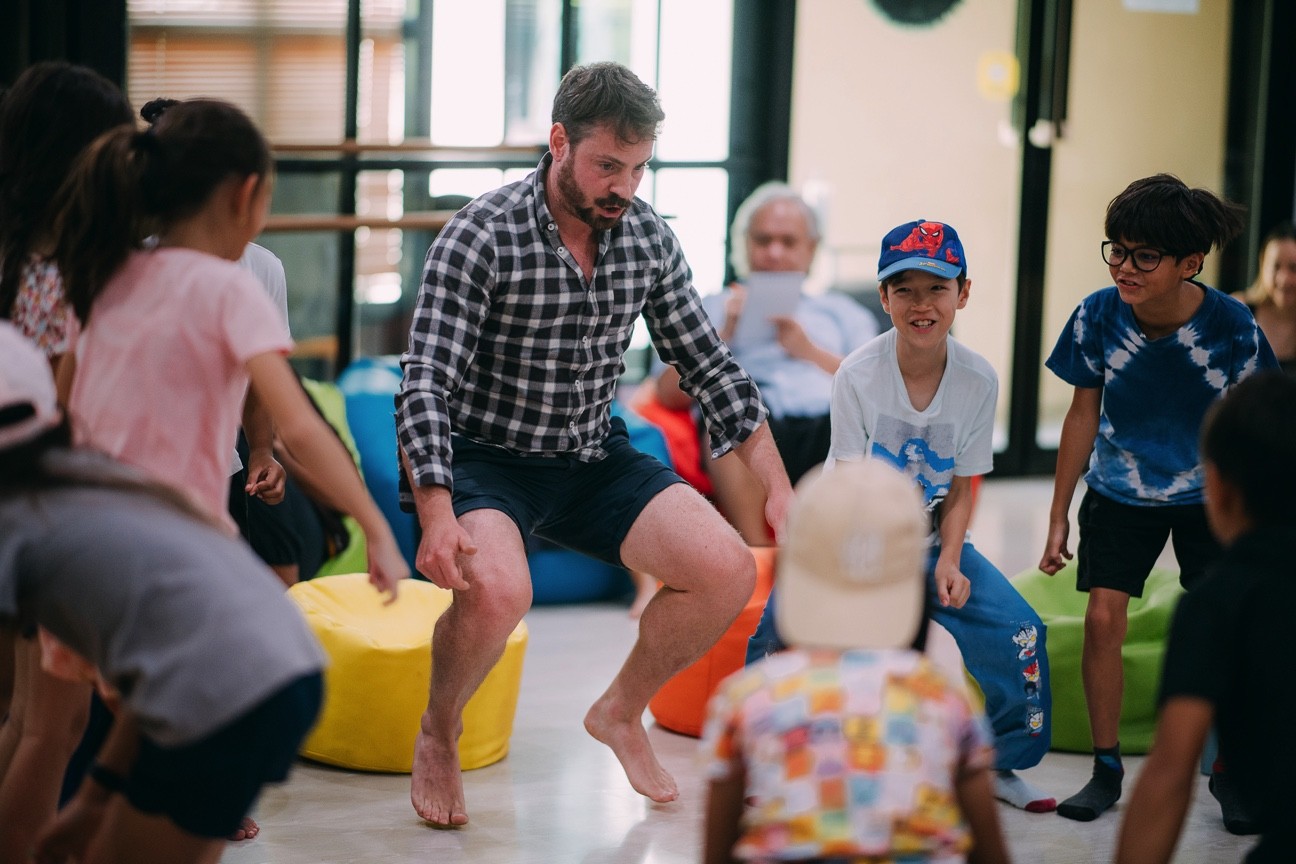
Photography: Dave Cartwright
What are the challenges of working across Doncaster?
I mentioned earlier the importance of articulating truthful findings, and that brings its own challenges. Initially, it can be difficult to hear from people, particularly in the healthcare sector, who are struggling with capacity issues. On top of that, there’s the challenge of shared language when working across such diverse sectors. Finally, the sheer size and scope of these systems can feel overwhelming, especially when working part-time. If not handled carefully, all of this can result in misrepresentation or mistrust.
The key to overcoming these challenges is to stay focused and not try to tackle too much at once. It’s crucial to be transparent and clear with everyone involved, and, where possible, to bring people together to share their experiences and knowledge. Doncaster, for all the daily challenges its residents face, has a strong sense of commitment to collaboration. This collective spirit will help address some of these challenges.
Final question then: What does success look like for the Creative Health Connector?
I’ll use the title of the role to guide my answer. Starting with ‘Creative’: Success here means repositioning the value of creative interventions in healthcare pathways. The evidence supporting this is strong, and the workforce is ready, but sometimes the bigger pieces – such as funding, referral routes, and timelines – don’t align as they should. I believe success will come when there’s a shift in how the ‘Creative’ is valued in healthcare, so anything I can do to facilitate that is a successful use of my time.
For ‘Health,’ success is about improving people’s lives and making those who are ill feel better. Anything that can be done to streamline systems, create space, and give people new avenues to take ownership of their own health is a win in my book.
Finally, for ‘Connector,’ success is about strengthening networks and enabling people to work more effectively together. Collaboration is key. If this role helps bring individuals, organisations, and systems together to move from where we are now (a bit of a mess) to somewhere better, then I’ve done my job. into health and care pathways to reduce health inequalities and support people to lead longer and healthier lives.
